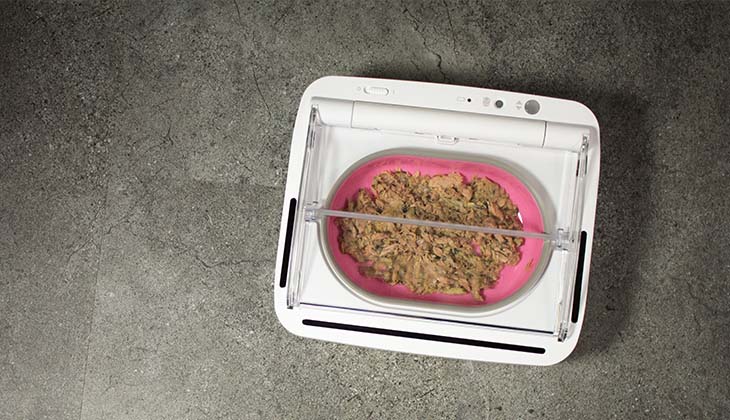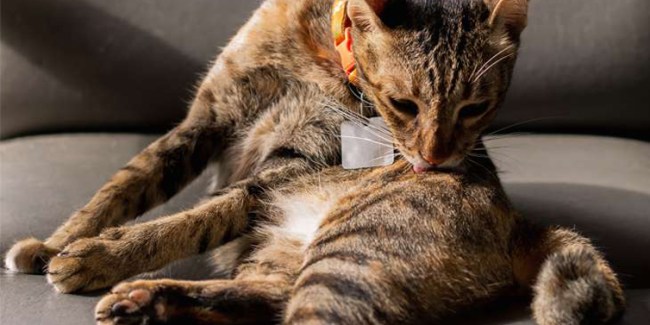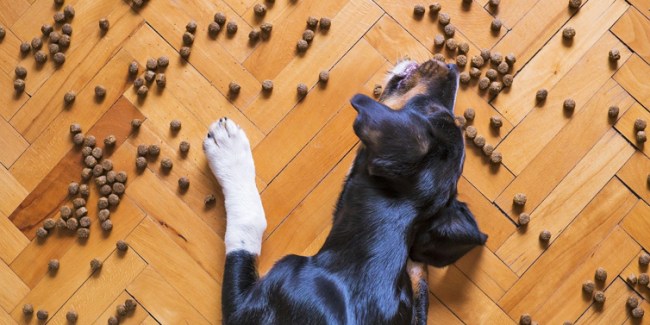Doggy Diabetes – How to Cope
A diagnosis of diabetes in your beloved canine companion can be daunting, overwhelming and scary for you, the pet parent. You will probably be worried about whether or not you will be able to handle this serious condition.

What does this diagnosis mean?
When your pooch is diagnosed with diabetes, it means that his/her body is not producing enough insulin to turn food into energy. The body needs glucose from food to use as fuel. When there is a shortage of insulin, the cells in the body become starved of energy and your pooch becomes sick.
How is this treated and managed?
There are management strategies and various treatment choices which will help to ensure that your pooch has a long and happy life. A daily routine of treatment with insulin, an appropriate diet and exercise will ensure that doggy diabetes is managed effectively.
Diabetes management is intended to ensure that your pooch becomes as happy and healthy as possible.
So … how can you achieve this?
Insulin Therapy
When your pooch is diagnosed with diabetes, it means that his/her body is not producing enough insulin, which turns food (glucose) into energy for the cells. Insulin reduces high blood glucose in the bloodstream (which can be dangerous) and allows the glucose to enter the cells to be used as fuel. Low insulin levels in diabetic dogs must therefore be raised.
Do not panic! Your vet is there to help you:
- Your vet will work out a plan for you to give your dog insulin every day, which reduces high blood glucose and which will eliminate or reduce the symptoms of diabetes, which include extreme thirst, increased urination and weight loss.
- He/she will guide you through insulin injections, appropriate diet and exercise regimens, and will show you how to keep track of your poochie’s progress. Some dogs will require one insulin injection per day, others may need two injections. The daily dose will be based on your dog’s individual needs and weight.
- You should begin to see improvements in your dog’s symptoms shortly after beginning treatment.
- Record any changes regarding your dog’s appetite and attitude, as your vet may want to adjust the dosage, depending on your doggie’s progress and the results of follow-up tests.
- It is important to manage the insulin doses very carefully as inaccurate dosing may result in hypoglycaemia, which means that the blood glucose is too low, which is a serious complication of diabetes.

Timing of Insulin Injections
Your vet will explain to you that there is an important correlation between the timing of your pooch’s insulin injections and his/her daily meals. Your vet will advise you about the type, quantity and frequency of meals, including the number of calories your pet should consume at each meal.
The insulin injection helps to manage the blood glucose increases which happen as your dog digests food. For optimum effect, it is crucial to time insulin injections around meals in order for your dog to get the most benefit from the insulin.
There are several ways you can do this:
- Injections before meals means that the food may be regarded as a reward by your doggie after the insulin injection.
- Injections during meals lets you see if your pooch is feeling well and eating normally. The food may also be used as a distraction while you give the injection.
- Injections after meals also allows you to see that your dog is feeling well and eating normally before his/her injection.

Nutrition for Your Diabetic Dog
It is very important for your diabetic pooch to eat well and to maintain a healthy weight and body condition. A tasty, consistent and nutritious diet plays an important role in managing your doggie’s diabetes.
Your vet will help you to work out the appropriate calorie intake and any treats or snacks for your doggie, in addition to his/her daily meals. The composition, amount and timing of meals should be the same each day to ensure that your dog’s blood glucose level remains as stable as possible.
Your vet may suggest:
- Treats or snacks which can be given to your dog as part of his/her daily calorie allowance.
- Regular dog food which is complete and balanced, or a prescription diet to maintain a stable level of blood glucose.
- Fresh drinking water which must always be available and which can be measured to keep a check on your pooch’s progress.

Any Questions?
My diabetic doggie is a fussy eater. How will he cope with a new diet?
If your dog is fussy about his/her food, try to give the new diet for over 10 days for him/her to get used to it. Mix the new food with the old diet, gradually increasing the new food and decreasing the old. If your dog refuses the new diet altogether, then contact your vet for his/her advice. It is vitally important that your dog eats consistently.
Do I need to worry about my diabetic doggie’s weight?
Your vet is the person who can advise you about your dog’s optimum weight and condition and will help you to manage it. Achieving optimum weight is important and can help you to simplify the management of diabetes. Overweight pooches need a diet which will help them to lose weight gradually; underweight dogs need a diet which contains high-quality protein (i.e. meat) and which is highly digestible in order that they gain weight gradually.
I’m feeling a bit overwhelmed by all of this!
This is understandable. Looking after the health and nutritional needs of a diabetic doggie can seem to be quite complicated at first. However, there are some products out there that can help you to feed, track and monitor your pet’s special needs, which may make your life easier and which will reassure you that you are doing a good job! For example, there are connected feeders and app-based trackers which monitor your dog’s diabetes, assisting you in measuring and monitoring your pooch’s food, which helps you to manage your diabetic doggie’s health and progress.
Finally … remember that, once stabilized – with the help of your vet, insulin treatment and diet – most cases of doggie diabetes can be successfully managed by you, at home. These special doggies can live as long as other dogs, with a good quality of life.
A consistent daily routine and monitoring and detecting signs of improvement or deterioration, as quickly as possible, are key to managing this condition. Do not forget that your vet will become your best ally along the road to a happy and healthy life for your diabetic friend.
ZA-NON-230700002

Subscribe to our Newsletter
Get to know your furry friend better! Sign up for all things dog- or cat-related.
The Hairy Facts about the dreaded hairball
12 April 2021
Help! My dog’s barking mad! Volume 2
12 April 2021
Your Itchy, Scratchy Cat – All About Cat Skin Problems
12 April 2021
The Dog’s Diet: A Bone of contention?
01 April 2021
Mango Fly Worms: How to Spot and Eliminate them
Posted on November 28,2019
Managing Mange And Mites In Your Dog
Posted on June 11,2018
Why Do Cats Purr and How? Learn What Your Cat Is Saying
Posted on October 14,2020
How to Get Rid of Ear Mites in Dogs
Posted on November 06,2019









